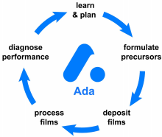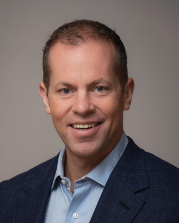Curtis P. Berlinguette"*3: Jason E. Hein1, Alan Aspuru-Guzik4,5,Ben P. MacLeod1,
Fraser G.L. Parlane1, Brian Lam.1
1 Department of Chemistry, The University of British Columbia, 2036 Main Mall,
Vancouver, BC, V6T 1Z1, Canada
Department of Chemical and Biological Engineering, 2360 East Mall,
The University of British Columbia, Wncouver, BC, V6T 1Z3, Canada
3 The Stewart Blusson Quantum Matter Institute, The University of British Columbia,
2355 East Mall, Vancouver, BC, V6T 1Z4, Canada
4 Department of Chemistry, The University of Toronto, 80 St. George Street,
Toronto, ON, M5S 3H6, Canada
5 Department of Computer Science, The University of Toronto, 40 St. George Street,
Toronto, ON, M5S 2E4, Canada
EXTENDED ABSTRACT: This presentation will fbcus on our self-driving laboratory for thin film materials discovery and optimization. Discovering high-performance, low-cost materials is an integral component of technology innovation cycles,particularly in the clean energy sector. The linear methodology currently used to develop optimal materials can take decades, which impedes the translation of innovative technologies from conception to market. Our interdisciplinary team is utilizing advanced robotics, machine learning, and computational screening to overcome this challenge. We are closing the feedback loop in thin-film materials research by enabling our selfdriving robotics platform named "Ada" to design, perform, and learn from its own experiments efficiently and in real time (Figure 1). As a proof-of-principle set of experiments, I will show how Ada discovers and optimizes high-performance, low-cost hole transport materials for use in advanced solar cells. I will also showcase how Ada's modular design can enable the automated and autonomous discovery of materials for other clean energy technologies.

Figurel. Ada's autonomous,closed-loop workflow for accelerating the discovery of thin film materias.
Keywords: Materials Discovery; Machine Learning; Robotics; Automation; Thin Films.

Dr. Curtis P. Berlinguette is a Professor of Chemistry and Chemical and Biological Engineering at the University of British Columbia. He is also a CIFAR Program Co-Director, a Principal Investigator at the Stewart Blusson Quantum Matter Institute, and a Fellow of the Royal Society of Canada. Profl Berlinguette^ academic research group designs and builds advanced electrochemical reactors for reactive CO2 capture, electrification of the chemical industry, and low-temperature nuclear fusion. His research group also builds self^driving laboratories that combine flexible automation and artificial intelligence.